The Need for Speed

In our last installment we discussed the basic techniques of ocean and coastal dead reckoning, which is determining our location based on our course and speed since the time of an earlier known position. In this installment we will discuss how to obtain our boat speed in the absence of GPS.
SPEED OVER GROUND VERSUS SPEED THROUGH THE WATER
GPS speed, meaning Speed Over Ground (SOG), is a measure of our total speed over the surface of the earth, regardless of how that speed was accomplished, whether from our own propulsion, wind, currents, or any other source. Speed Through the Water (STW) is only the speed of your boat relative to the moving medium of the water.
For example, imagine that you are floating in a barrel in three knots of tidal current. Your SOG would read 3.0 knots, but your STW, however derived, would (always) be zero, no matter how fast the currents are running. For dead reckoning (and many other navigation applications) we must use STW rather than SOG, so even with an operational GPS, we need to be able to derive our STW.
Here are several means of determining Speed Through the Water.
DST TRANSDUCERS
For a cruising trawler, the simplest solution is to have an electronic transducer that tells us our STW. There are stand-alone speed transducers, but for a few hundred dollars you can get an all-in-one depth, speed, and seawater temperature transducer. There really isn’t much more to say about this one; it’s plug-and-play, completely independent of GPS, and a superb investment for any cruising boat.
HULL SPEED
Esta historia es de la edición September 2017 de Passage Maker.
Comience su prueba gratuita de Magzter GOLD de 7 días para acceder a miles de historias premium seleccionadas y a más de 9,000 revistas y periódicos.
Ya eres suscriptor ? Conectar
Esta historia es de la edición September 2017 de Passage Maker.
Comience su prueba gratuita de Magzter GOLD de 7 días para acceder a miles de historias premium seleccionadas y a más de 9,000 revistas y periódicos.
Ya eres suscriptor? Conectar
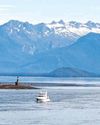
Nord2AK: Nordhavn's 2016 Rendezvous
The seeds were planted in 2012. We had been cruising for several weeks in the remote waters of northern British Columbia, where it isn’t unusual to go for several days without seeing another boat. Then surprisingly, two other Nordhavns sailed into Sea Otter Cove where we were anchored on the west side of Vancouver Island.
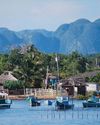
Cuban Sojourn
The second part of a journey along Cuba’s northern coast.

Shop Talk
Daniel Harper Q&A Founder & CEO of Siren Marine talks with us about how marine products are beginning to take advantage of onboard data.
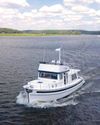
Bye, Bye, Birdie #5
The Need for Speed
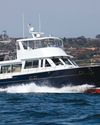
On The Water Duffield 58
It’s not every day that a brand-new 58-foot performance trawler appears on the marketplace radar, but that seems to have happened with the debut of the Duffield 58 Motoryacht.
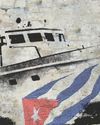
Castro's Mystery Motoryacht
Gianma and the voyage that changed the world.

Bye, Bye, Birdie #6
A Star to Steer Her By.
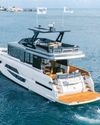
Glass Living
Testing the Modern and Versatile Okean 50.
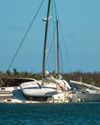
Navionics Spearheads Post-Irma Re-Mapping Effort
Boaters Can Contribute Cartography And Debris/Wreck Locations.
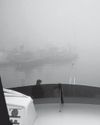
Coping With Fog
Dealing With One of the Most Dangerous Elements of Seamanship.